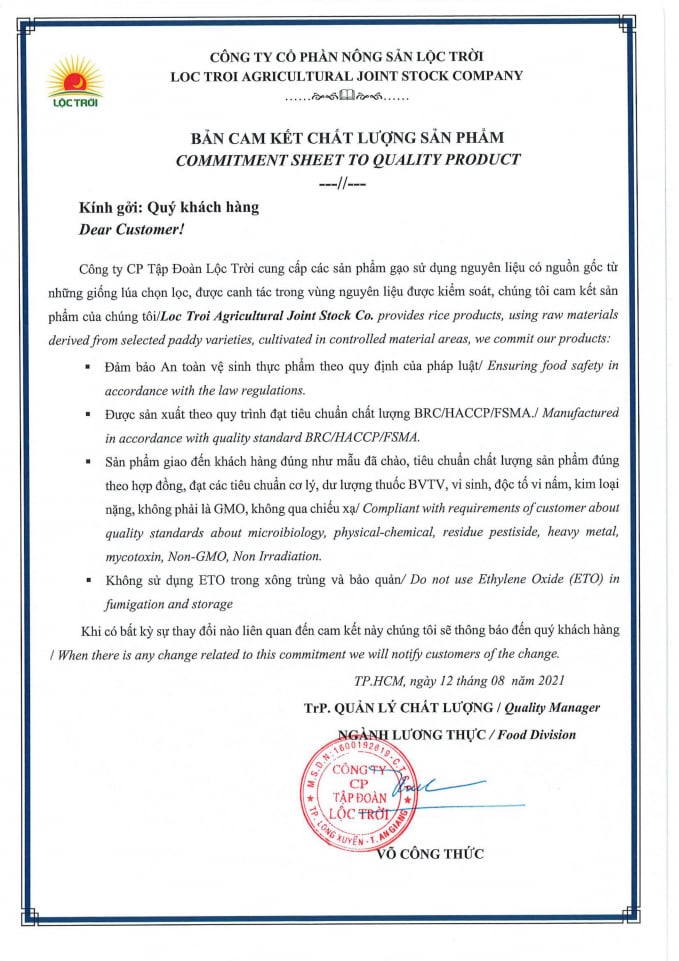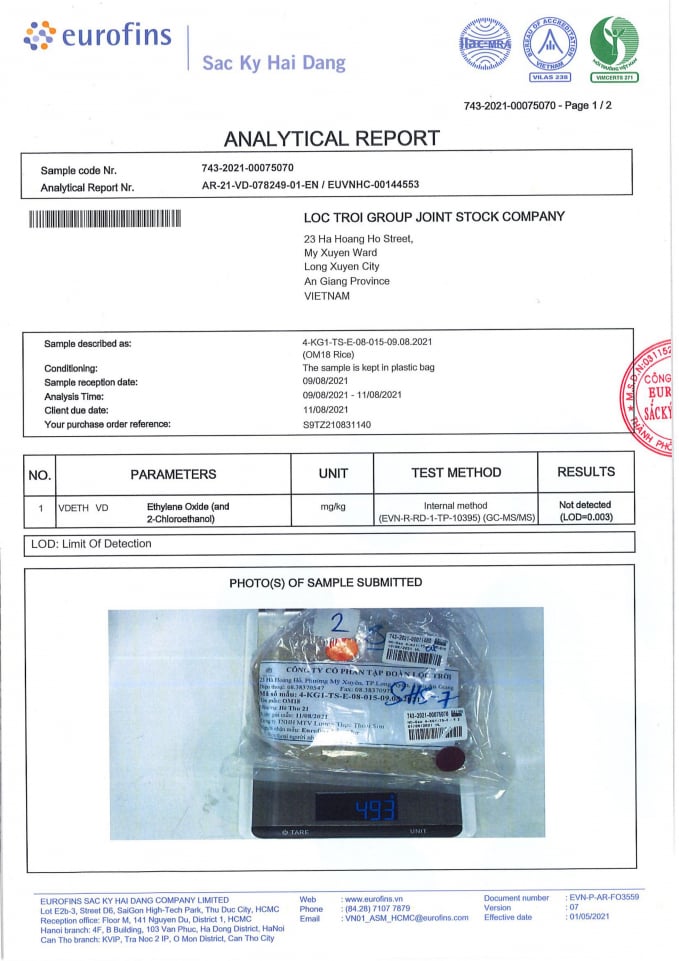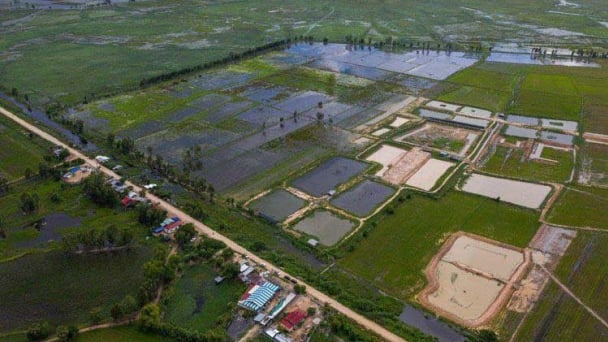May 17, 2025 | 10:08 GMT +7
May 17, 2025 | 10:08 GMT +7
Hotline: 0913.378.918
May 17, 2025 | 10:08 GMT +7
Hotline: 0913.378.918

Loc Troi's commitment sheet to quality product.
Ethylene Oxide (ETO or EO) is a toxic, highly reactive, and flammable chemical substance that is gaseous in nature. It is permitted in a number of nations for the control of insects in certain agricultural goods, as well as for the disinfection of food components and products (especially for spices and herbs such as paprika, pepper and cinnamon).
However, once ETO molecules come into contact with food, they quickly produce metabolites. Although no conclusive evidence of carcinogenicity has been shown, many studies have demonstrated the metabolites' genotoxic potential.
ETO is banned in Europe and is categorized as group 1B for mutagenicity and reproductive toxicity, and class 3 for acute toxicity, according to European Council rules.

Analytical report for a product from Loc Troi.
As the largest rice exporter in Vietnam, particularly to the European market, Loc Troi adheres to stringent standards for varieties selection, cultivation, harvesting, and processing, while also requiring suppliers and partners to refrain from using ETO in the manufacturing process.
From 2021, Loc Troi undertakes yearly product audits in conjunction with the adoption of ERP in operations and management in order to be open about its commitments to European customers and partners.
Translated by Linh Linh
/2025/05/16/3800-0-nongnghiep-143756.jpg)
(VAN) Suntory PepsiCo Vietnam coordinated with the Ministry of Education and Training to implement an education program on water conservation, reaching nearly 1 million primary school students nationwide.

(VAN) Vietnam’s TH Group officially put its high-tech fresh milk processing plant into operation in the Russian Federation, marking a historic moment as the first TH true MILK cartons were produced in Russia.

(VAN) Use of high-quality broodstock and biotechnology is regarded as the most effective approach to ensuring sustainable and economically viable shrimp aquaculture ahead of climate change and the emergence of increasingly intricate disease patterns.

(VAN) Carbon farming is a form of agricultural practices that helps absorb more greenhouse gases than it emits, through smart management of soil, crops, and livestock.

(VAN) This is a key content of the Memorandum of Understanding recently signed between the Vietnam Fisheries Society and Kunihiro Inc of Japan.

(VAN) To achieve the goal, local authorities and businesses in Kon Tum province have fully prepared the necessary conditions for the new Ngoc Linh ginseng planting season.

(VAN) Jiangsu province is gearing up to host training programs in Phnom Penh, the capital of Cambodia, this year to establish the Fish and Rice Corridor.